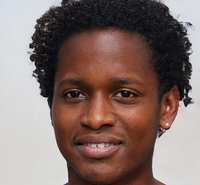
This question was much easier to answer before technical analysis became part of traders' arsenal. In the past, traders did not have technical indicators and charts at their disposal, so they paid attention to economic and political news. However, conclusions based on observation of current political and market conditions are not always correct. How peaceful our lives would be if we could accurately predict the future by studying the past and analyzing the present! But analysts have proved more adept at explaining the causes of what has already happened than at predicting future facts.
Ed Seikota, the creator of the first electronic trading software, started thinking about mathematical trend analysis because of his own frustrations with trading. He became very depressed after an unsuccessful silver trade. He could not understand why prices were falling, even though economic and political news seemed to provide an upward trend. Seikota became an advocate of technical analysis, having seen repeatedly that forecasts based on economic news often led to losses.
But if technical analysis is not a panacea, securities trading must be measurable and predictable. Indicators often lie: Sometimes technical analysis data contradicts market trends. Blind trust in indicators can be costly.
Michael Kovel has set a rule that trading should be stopped if technical analysis data contradicts fundamental analysis data. Trading in such cases is risky. It is better to adopt a "wait and see" approach.
It is therefore natural for traders who want to maximize their chances of success to pay attention to the world economy. This source of information should not be neglected, but neither should it be ignored.
At the moment, the riskiest and most reliable bonds and bonds with the lowest yields are those of the US, the EU, Japan, Switzerland and other so-called developed countries. The riskier, less reliable and therefore higher-yielding bonds are those of developing countries: China, Russia, Brazil, Turkey, etc. As investments in emerging economies are riskier, investors in these economies expect a so-called risk premium, i.e. a higher return than in developed markets.
The same applies to companies in developed countries. Developed countries are more credible than developing countries because their economies are stable, their political systems are stable, their currencies are stable, their citizens can plan for the long term and their wages are high, so companies can plan for the long term without fear of sudden impoverishment through looting, regime change or bankruptcy. Development and planning for 15-20 years in developing countries is cheaper and easier than planning for 5–7 years.
Conclusion
In conclusion, I would ask you not to become an advocate of any theory, strategy or methodology after you have examined the above in depth and comprehensively, or superficially and in general. Do not go from one extreme to the other. Finance, investment, trading is a vast science, intertwined with the universe, with politics, with war, with deception, with delusion, with dreams and with man's noble desire to exploit and conquer the vastness of his existence. Not everything is logical and rational, not everything is right and fair, but it is also fascinating.
Related Posts
You may like these post too
Leave a Reply
Your email address will not be published.




Comments on this post
0 comments